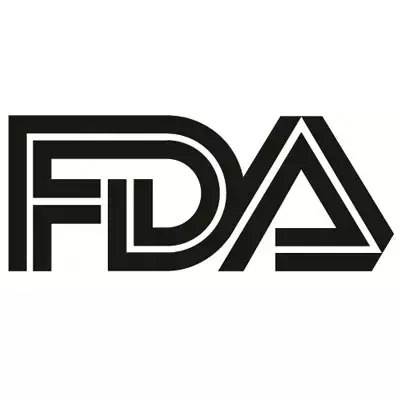- Home
- Medical news & Guidelines
- Anesthesiology
- Cardiology and CTVS
- Critical Care
- Dentistry
- Dermatology
- Diabetes and Endocrinology
- ENT
- Gastroenterology
- Medicine
- Nephrology
- Neurology
- Obstretics-Gynaecology
- Oncology
- Ophthalmology
- Orthopaedics
- Pediatrics-Neonatology
- Psychiatry
- Pulmonology
- Radiology
- Surgery
- Urology
- Laboratory Medicine
- Diet
- Nursing
- Paramedical
- Physiotherapy
- Health news
- Fact Check
- Bone Health Fact Check
- Brain Health Fact Check
- Cancer Related Fact Check
- Child Care Fact Check
- Dental and oral health fact check
- Diabetes and metabolic health fact check
- Diet and Nutrition Fact Check
- Eye and ENT Care Fact Check
- Fitness fact check
- Gut health fact check
- Heart health fact check
- Kidney health fact check
- Medical education fact check
- Men's health fact check
- Respiratory fact check
- Skin and hair care fact check
- Vaccine and Immunization fact check
- Women's health fact check
- AYUSH
- State News
- Andaman and Nicobar Islands
- Andhra Pradesh
- Arunachal Pradesh
- Assam
- Bihar
- Chandigarh
- Chattisgarh
- Dadra and Nagar Haveli
- Daman and Diu
- Delhi
- Goa
- Gujarat
- Haryana
- Himachal Pradesh
- Jammu & Kashmir
- Jharkhand
- Karnataka
- Kerala
- Ladakh
- Lakshadweep
- Madhya Pradesh
- Maharashtra
- Manipur
- Meghalaya
- Mizoram
- Nagaland
- Odisha
- Puducherry
- Punjab
- Rajasthan
- Sikkim
- Tamil Nadu
- Telangana
- Tripura
- Uttar Pradesh
- Uttrakhand
- West Bengal
- Medical Education
- Industry
FDA Approves Treatment for Rare Disease Affecting Optic Nerves, Spinal Cord

The U.S. Food and Drug Administration has approved Enspryng (satralizumab-mwge) for the treatment of neuromyelitis optica spectrum disorder (NMOSD) in adults with a particular antibody – patients who are anti-aquaporin-4 or AQP4 antibody-positive. NMOSD is a rare autoimmune disease of the central nervous system that mainly affects the optic nerves and spinal cord. Enspryng is the third approved treatment for the disorder.
NMOSD can be associated with antibodies that bind to a protein called aquaporin-4 (AQP4). Binding of the anti-AQP4 antibody appears to activate other components of the immune system, causing inflammation and damage to the central nervous system.
The effectiveness and safety of Enspryng for the treatment of NMOSD was demonstrated in two 96-week clinical studies. The first study included 95 adult patients; 64 of these patients had antibodies against AQP4 (anti-AQP4 positive). During this study, treatment with Enspryng reduced the number of NMOSD relapses by 74% in patients who were anti-AQP4 positive compared to treatment with a placebo (inactive treatment).
The second study included 76 adult patients; 52 of these patients were anti-AQP4 positive. During the second study, treatment with Enspryng reduced the number of relapses in patients who were anti-AQP4 positive by 78% compared to treatment with a placebo. There was no evidence of a benefit in patients who were anti-AQP4 antibody negative in either trial.
The prescribing information for Enspryng includes a warning for increased risk of infection, including serious and potentially fatal infections – such as potential reactivation of hepatitis B and tuberculosis. Other warnings and precautions for Enspryng include elevated liver enzymes, decreased neutrophil counts and hypersensitivity reactions. The most common side effects observed were the common cold (nasopharyngitis), headache, upper respiratory tract infection, inflammation of the lining of the stomach, rash, joint pain, extremity pain, fatigue and nausea. Vaccination with live-attenuated or live vaccines is not recommended during treatment and should be administered at least four weeks before starting Enspryng.
Enspryng received fast track designation, which expedites the development and review of drugs that are intended to treat a serious condition and demonstrate the potential to address an unmet medical need. The drug also received orphan drug designation, which provides incentives to assist and encourage drug development for rare diseases.
For further reference log on to:
FDA
Hina Zahid Joined Medical Dialogue in 2017 with a passion to work as a Reporter. She coordinates with various national and international journals and association and covers all the stories related to Medical guidelines, Medical Journals, rare medical surgeries as well as all the updates in the medical field. Email: editorial@medicaldialogues.in. Contact no. 011-43720751
Dr Kamal Kant Kohli-MBBS, DTCD- a chest specialist with more than 30 years of practice and a flair for writing clinical articles, Dr Kamal Kant Kohli joined Medical Dialogues as a Chief Editor of Medical News. Besides writing articles, as an editor, he proofreads and verifies all the medical content published on Medical Dialogues including those coming from journals, studies,medical conferences,guidelines etc. Email: drkohli@medicaldialogues.in. Contact no. 011-43720751


